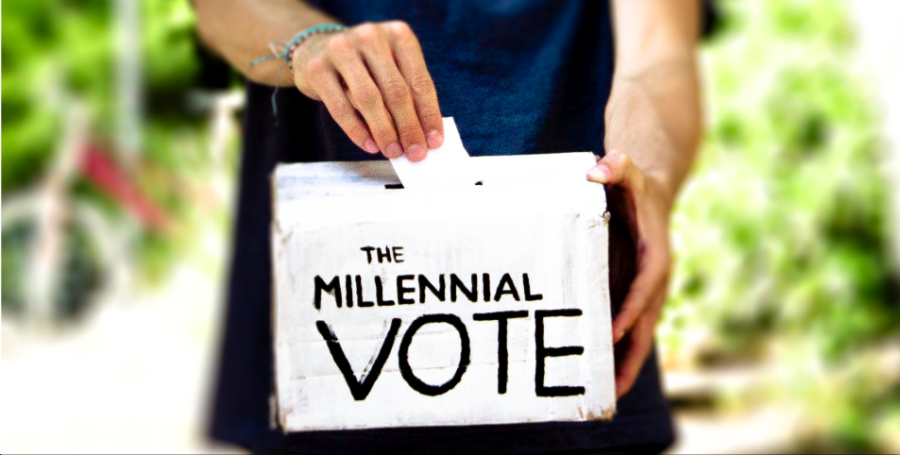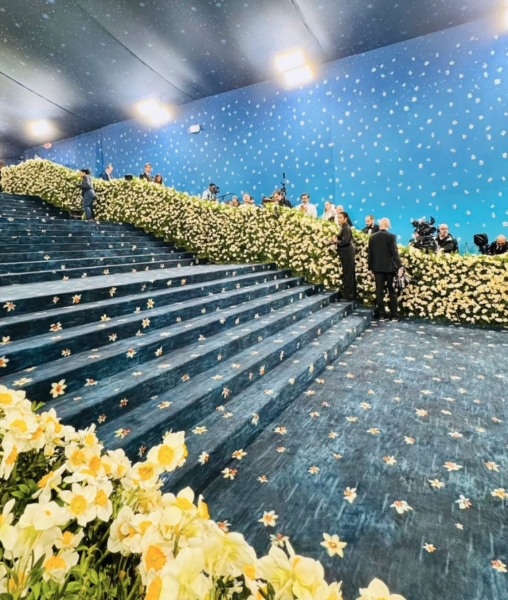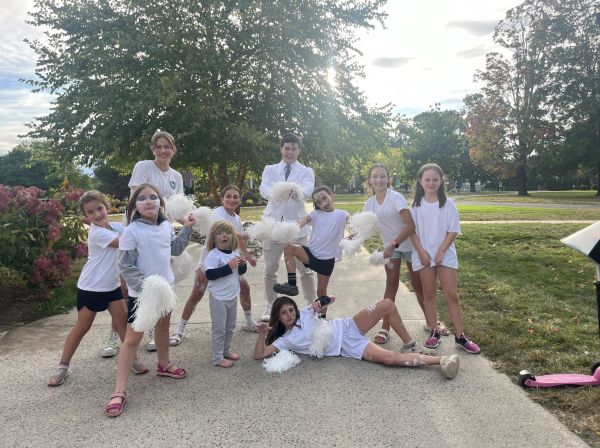Power in Numbers: Millennial Voting
http://ivn.us/2015/01/13/the-next-us-president-cant-win-without-the-youth-vote-in-2016/
Getting Millennials to vote is critical in changing this country.
According to Whitehouse.gov, they were born between 1980-2004. They are the largest and most diverse generation in the United States. Their generation has grown up in a virtually connected world and has made unparalleled advances in the technology. They are the most educated generation the nation has seen. This group of people are the Millennials a highly intelligent and unique generation. Millennials have extreme power in revolutionizing the future of this society in untraditional ways that their preceding generations have not seen.
Due to Millennials’ immense size they have a huge voice, when it comes to politics. However the only way for their voice to be heard is by voting.
Kim Kagan, Republican Party regional volunteer urges young voters, saying, “Voting is a crucial part in having a voice in the future of this country. The most concrete way to see change is to vote.”
Millennials are a progressive generation and that reflects politically, too. Millennials are notably known for being liberal and are looking for a more progressive America. The Center for American Progress reported that “Millennials support gay marriage, take race and gender equality as givens, are tolerant of religious and family diversity, have an open and positive attitude toward immigration, and generally display little interest in fighting over the divisive social issues of the past.”
John Zogby, contributing writer for Forbes Magazine said, “Millennials are looking for something different from American politics.” He continued, “They are ushering in a new political dialogue that transcends the old liberal/conservative paradigm.
Millennials are concerned with their country’s future and have shown their dedication to improving the nation by voting. For a while voting turnout for Millennials was going steady. More Millennials were reaching eligible voting age so votes were rising for this age group. The Millennial Generation was the age group that showed the greatest increase in voter turnout between 2000 and 2008. The 2008 election was the peak for Millennial voter participation with “at least 52%(increase) with 23 Million Voters Under 30,” according to a study by Civic Youth.
However in 2012, the turnout among voters 18 to 29 dropped to 45 percent. A study by Civic Youth reported that the Millennial vote “has only been lower in three presidential elections—1988, 1996, and 2000.”
A multitude of reasons prevents this large population of voters to the polls are.
We are hard to track down:
Millennials are in a time when they are moving around a lot and are therefore harder for campaigns to track down.
Mr. Gunn says, ” I think it is an extraordinary busy time in the lives of young people and it’s a time with dislocation and often the first time you vote you are either about to depart or have recently arrived in a community that’s different from the one you grew up from. This plus other reasons prevent young voters from voting.”
Trust:
Politics are very disheartening to Millennials. In the 2008 election Millennials were excited for the possibility of “Hope and Change”; however, they became let down once none of that came from Washington.
Josh Stein, a member of the Young Democrats Club at Florida State University, mentions, “I think a lot of us don’t have trust in the government. Politicians promise Americans all these great things to gain votes yet once in office nothing gets put into action.
He continues, “We are a generation that has been exposed to great war and financial problems and we see the government essentially doing nothing to resolve problems.”
What also leads to distrust in government is that young “people wish the government was more evidently succeeding in buffering us from forces and was doing so in a way that was beneficial to all people rather than what it appears to just being beneficial to a few,” Mr. Gunn adds.
Ignorance:
Education level can predict the likely hood of young voters to vote. The Civic Youth organization noted that in the 2012 election, young people with college experience were almost twice as likely to vote as those without college experience (55.9% vs. 28.6%). Not only education, but sheer ignorance on political issues can lead Millennials not to cast their vote.
Julia Lustenauder ’16 shares, “I feel like I am not knowledgeable enough on politics to vote.”
Millennials may not follow politics so when the elections roll around they are unsure of which presidential candidate to cast their vote for.
Mr. Gunn says, “If young voters feel uninformed or uncertain they are more likely to not vote.”
Their vote won’t matter:
Often times Millennials believe that voting doesn’t make a difference in the big picture of things.
For example, if they live in a Republican state, but have democratic views, a Sarah Lamia, University of Alabama student says, “my single democratic vote in a state ruled by republicans won’t change anything.”
She is not alone in that belief. According to Catherine Rampell, writer for The Washington Post, “only a third of young people say their vote will ‘make a difference’ anyway.” However, Mr. Gunn adds that, “Not voting isn’t going to change anything.”
It is harder for young voters to vote:
Millennial voters are very busy and with new voting registration implications, This makes getting out to the ballots even more of a reason for young voters to not participate.
According to Brennan Center for Justice, “Between 2010 and 2014, at least 22 states passed laws that made it harder or less convenient for eligible voters to vote.” According to Rampell the rules include: “new photo-ID requirements with restrictive lists of acceptable identification, shorter voting hours, the end of same-day voter registration, and prohibitions on out-of-precinct voting.”
For the 2016 election, there is extreme curiosity surrounding what the turnout will be like for the Millennial Generation. The Center for American Progress reported that “by 2016, there will be 93 million Millennials of voting age and 81 million Millennial eligible voters—accounting for 36 percent of all eligible voters. This should produce an estimated 46 million voting Millennials, representing 33 percent of all voters.”
When asked around Williston students, who recently turned 18 and are eligible voters in the 2016 election, who they would be voting offered a range of responses.
Julia Wise ’16 answers, “I am going to vote for Hillary Clinton because it is time this country has a strong women as president.”
Aaron James ’16 responds, “I think Bernie Sanders is awesome. He is a politician who actually cares about my future and not just about the money. I also really support his socialist views. It is something different this country hasn’t seen yet and definitely needs.”
However, some Williston students decided they would not be participating in the 2016 election.
Sabrina Sampson ’16 says, “I think our political system is corrupted. Politicians only care about the money and not about actually solving problems in this world, so I am not going to give anyone my vote in the next election.”
Michael Dereus’16 says, “Politics do not interest me, so I am not going to vote on candidates. I don’t have enough knowledge about. It just wouldn’t make sense.”
Time will tell for the outcome of the 2016 election. But what is crucial to the future of this nation is to get the Millennial generation informed and involved in politics. As the largest and most diverse generation, Millennials are making a huge impact by their vote, it is only when we don’t vote we are silencing ourselves to change. There is power in number and we can make a difference by voting.









Michale stein • Dec 22, 2015 at 6:04 PM
Great article ray